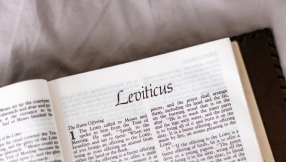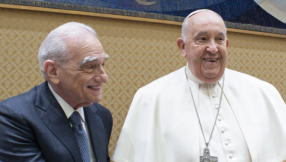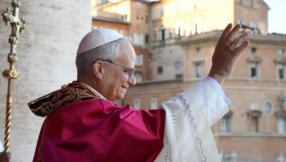
Atheists can be among the "keenest champions" of freedom of religion and belief, a conference in London was told.
Andrew Copson, of the British Humanist Association, told a conference on freedom of religion and belief at the Foreign Office, sponsored by human rights minister Baroness Anelay, that freedom of religion or belief was "a right of utmost importance to the non-religious".
Copson described a a civil servant in Indonesia who was prosecuted after he set up an atheist group on Facebook.
Alexander Aan was charged with "insulting religion" for making the group available.
In addition, because he described himself as "Muslim" in his identity papers, he was charged with "lying on an official form", even though the papers do not allow a person to state they are atheist in Indonesia.
The need for freedom of religion and belief is also shown in the 13 countries where the mere profession of non-religious views can be deemed "apostasy" or "blasphemy" punishable by death.

Copson cited the International Humanist and Ethical Union's Freedom of Thought Report, an annual survey of discrimination and persecution against the non-religious.
One case in the latest report is that of Mohamed Cheikh Ould M'kheitir, from Mauritania. Accused of blasphemy, this December will mark the second anniversary of his being sentenced to death. He awaits execution on death row.
Copson said the case began and ended in a single day.
"He has been on death row throughout 2015 and now throughout 2016, to date."
As a 28-year-old blogger, M'kheitir was arrested in January 2014 for allegedly publishing an article seen by some as insulting Muhammad and constituting an act of apostasy.
Copson said: "His writing in fact sought to highlight the indentured servitude in Mauritanian society, often socially justified with reference to national cultural identity and in particular to Islamic tradition."
Following Mkheitir's initial arrest, there were protests condemning his writing and numerous calls, including by imams, scholars and professors, for his execution. One preacher even offered a substantial financial reward to anyone who killed him.
Copson said his case had received little attention compared to others.
"It is always worth remembering that for every Raif Badawi and Asia Bibi, there are dozens or hundreds of similarly persecuted M'kheitirs, let alone the thousands more who – out of the reach of authoritarian interference – are suffering in silence."













